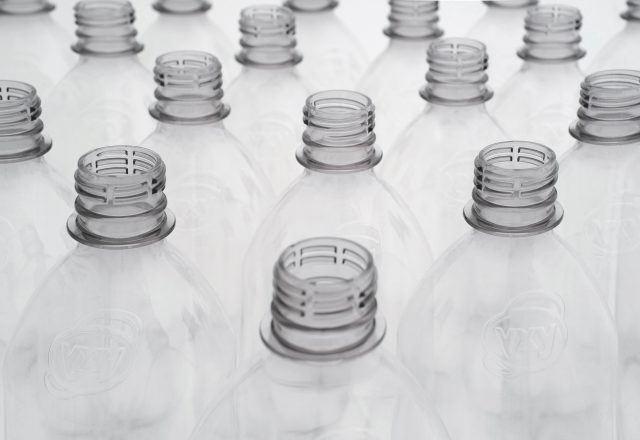The European PET Bottle Platform (EPBP) has given interim approval for the recyclability of polyethylenefuranoate (PEF), produced by Synvina C.V., Amsterdam, in the European bottle recycling market.
Following EPBP’s assessment, PEF bottles are expected to be disposable through existing recovery systems the same way as polyethylene terephthalate (PET), the conventional material for plastic bottles.
The interim approval applies to a PEF market penetration of up to 2%.
This corresponds to the amount of PEF that could be produced from Synvina’s intended 50,000 tons reference plant for furandicarboxylic acid (FDCA).
FDCA made from renewable resources is the main building block for PEF.
The company will release a final statement based on PEF quality, packaging designs and regional launch markets before market introduction of the novel material.
PEF quantities in the European packaging market are expected to exceed the 2% market share on a medium term.
Synvina works with recyclers and brand owners to develop a dedicated recycling stream for PEF based bottles to separate the valuable PEF from conventional plastics.
PEF recycling in other markets like the US and Japan will be reviewed near-time.
PEF benefits for packaging industry
PEF is a bio-based plastic with improved barrier properties for gases like carbon dioxide and oxygen that offers a longer shelf life of packaged products.
With its recyclability, Synvina’s PEF offers high mechanical strength, thus thinner PEF packaging can be produced and fewer resources are required.
PEF is suitable as the main component or as a barrier layer in cups and trays, flexible packaging as well as bottles for carbonated and non-carbonated soft drinks, water, dairy products, still and sports drinks, alcoholic beverages, as well as personal and homecare products.
europe, pet, plastics, bottling, bottle, green, sustainability, environmentEurope: Body approves Synvina’s PEF in circular economy
The European PET Bottle Platform (EPBP) has given interim approval for the recyclability of polyethylenefuranoate (PEF), produced by Synvina C.V., Amsterdam, in the European bottle recycling market.
Following EPBP’s assessment, PEF bottles are expected to be disposable through existing recovery systems the same way as polyethylene terephthalate (PET), the conventional material for plastic bottles.
The interim approval applies to a PEF market penetration of up to 2%.
This corresponds to the amount of PEF that could be produced from Synvina’s intended 50,000 tons reference plant for furandicarboxylic acid (FDCA).
FDCA made from renewable resources is the main building block for PEF.
The company will release a final statement based on PEF quality, packaging designs and regional launch markets before market introduction of the novel material.
PEF quantities in the European packaging market are expected to exceed the 2% market share on a medium term.
Synvina works with recyclers and brand owners to develop a dedicated recycling stream for PEF based bottles to separate the valuable PEF from conventional plastics.
PEF recycling in other markets like the US and Japan will be reviewed near-time.
PEF benefits for packaging industry
PEF is a bio-based plastic with improved barrier properties for gases like carbon dioxide and oxygen that offers a longer shelf life of packaged products.
With its recyclability, Synvina’s PEF offers high mechanical strength, thus thinner PEF packaging can be produced and fewer resources are required.
PEF is suitable as the main component or as a barrier layer in cups and trays, flexible packaging as well as bottles for carbonated and non-carbonated soft drinks, water, dairy products, still and sports drinks, alcoholic beverages, as well as personal and homecare products.










